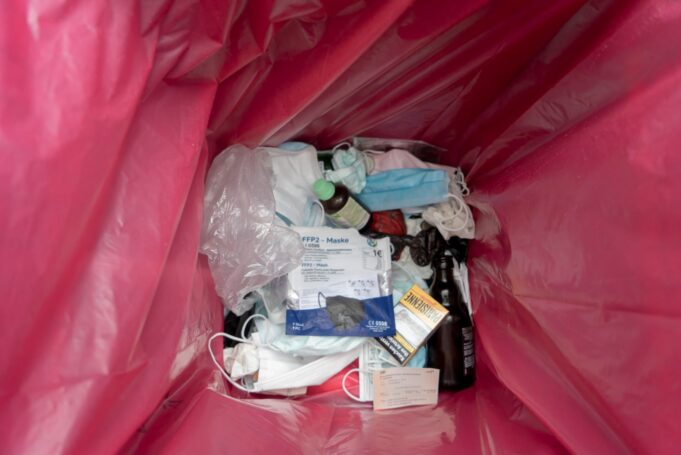In the healthcare industry, managing waste effectively is crucial for environmental sustainability and operational efficiency. Hospitals generate a substantial amount of waste, including hazardous, non-hazardous, and medical waste, which requires innovative strategies to manage and recycle. Here are some effective ways hospitals can reduce waste and enhance their recycling efforts.
Conduct Comprehensive Waste Audits
A fundamental step in waste reduction is conducting comprehensive waste audits. These audits help identify the types and volumes of waste generated, pinpointing areas where waste can be minimized or recycling can be improved. For example, Cleveland Clinic’s waste audits revealed common contaminants in their recycling stream, which led to targeted educational campaigns about recycling quality over quantity.
Educate and Engage Staff
Educational programs are essential for promoting proper waste segregation and recycling practices among staff. Hospitals can provide clear guidelines, signage, and training sessions to ensure that employees understand what can be recycled and how to dispose of different types of waste correctly. This approach helps prevent contamination in recycling streams and maximizes the amount of waste that can be effectively recycled.
Implement Robust Recycling Programs
Hospitals can establish robust recycling programs tailored to their specific waste streams. Key components of an effective recycling program include:
- Dedicated Recycling Centers: Establish centers for processing recyclable materials, such as Cleveland Clinic’s facility for clinical plastics.
- Accessible Recycling Bins: Place bins in strategic locations to encourage proper disposal of recyclable items.
- Regular Collection: Ensure consistent collection schedules to maintain cleanliness and efficiency.
These programs should also include efforts to recycle paper, cardboard, metal, and other non-hazardous waste. Hospitals can also participate in community recycling initiatives to expand their impact and foster a culture of sustainability.
Reprocess Medical Devices
Reprocessing single-use medical devices is an effective way to reduce waste and save costs. Reprocessed devices undergo rigorous cleaning and sterilization, making them safe for reuse. This practice not only reduces the volume of medical waste but also lowers the demand for new devices, thereby conserving resources. For instance, Kaiser Permanente’s reprocessing program collected over 400 tons of medical devices for reprocessing in one year.
Reduce Plastic Waste
Plastic waste is a significant concern in healthcare due to the extensive use of disposable items. Hospitals can implement programs to reduce plastic waste by:
- Switching to Reusable Alternatives: Using reusable sharps containers instead of disposable ones can substantially reduce plastic waste. Kaiser Permanente’s reusable sharps container program avoided over 1,500 tons of plastic waste in a single year.
- Targeted Recycling Initiatives: Focus on recycling specific types of plastics used in medical settings, like Baxter International’s pilot program for recycling PVC IV bags.
Adopt Sustainable Procurement Practices
Adopting sustainable procurement practices is another critical strategy for waste reduction. Hospitals can prioritize purchasing products that:
- Have minimal environmental impact.
- Are recyclable or made from recycled materials.
Engaging with suppliers to develop and source sustainable products can drive market changes and create new recycling opportunities. By integrating sustainability criteria into procurement policies, hospitals can reduce the environmental footprint of their operations.
Manage Hazardous Waste Properly
Proper management of hazardous and medical waste is essential for safety and compliance with regulations. Key practices include:
- Clear Protocols: Establish protocols for handling, storing, and disposing of hazardous materials.
- Staff Training: Ensure staff are trained on these protocols to manage hazardous waste safely and efficiently.
This approach reduces the risk of contamination and environmental harm.
Hospitals play a crucial role in leading sustainability efforts within the healthcare industry. By implementing comprehensive waste audits, engaging staff through education, and establishing robust recycling programs, hospitals can significantly reduce their environmental footprint. Reprocessing medical devices, reducing plastic waste, adopting sustainable procurement practices, and managing hazardous waste properly are all effective strategies that not only mitigate environmental impact but also enhance operational efficiency and cost-effectiveness. As more hospitals adopt these practices, the healthcare sector can move towards a greener, more sustainable future, setting a powerful example for other industries to follow.






